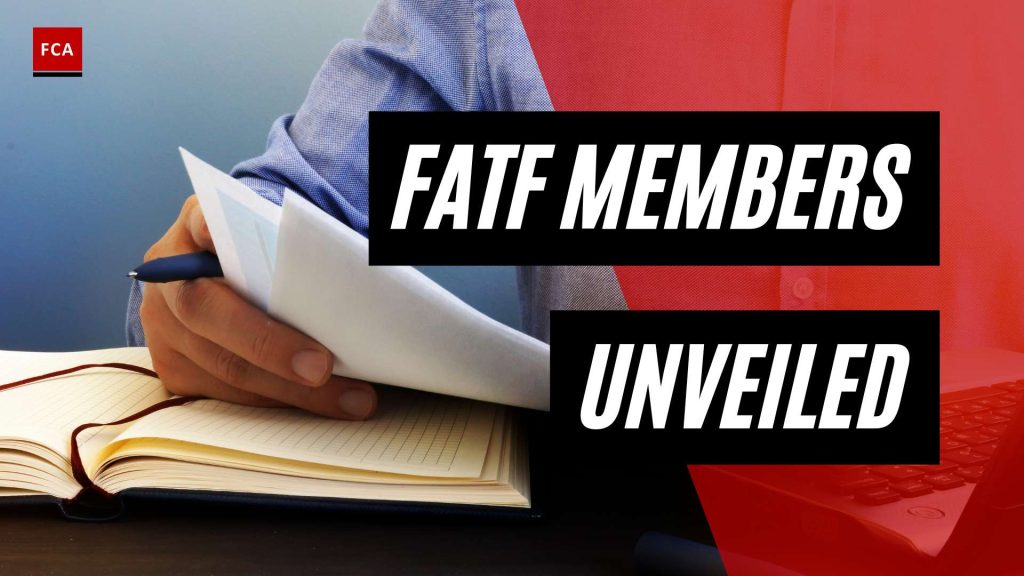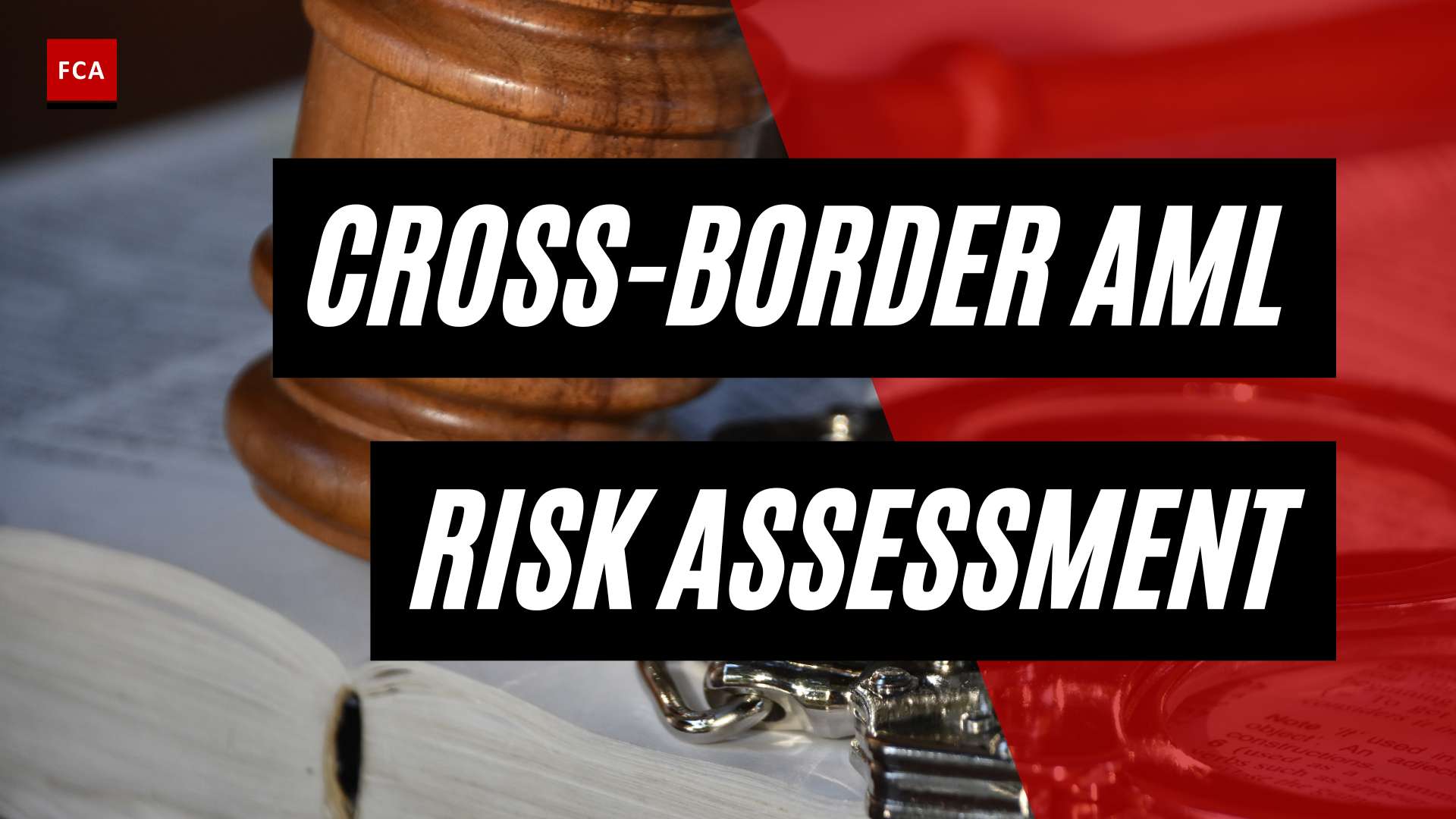The Financial Action Task Force (FATF)
Introduction to FATF
The Financial Action Task Force (FATF) is an intergovernmental organization established in 1989 with the primary aim of combating money laundering and terrorist financing. Comprised of 37 member countries and jurisdictions, along with several regional organizations, FATF plays a crucial role in setting global standards and promoting international cooperation in the fight against illicit financial activities.
Understanding the Role of FATF in Global Cooperation
FATF serves as a global standard-setter in the field of anti-money laundering (AML) and counter-terrorism financing (CTF). It develops and promotes policies and recommendations to combat these illicit activities, providing a framework for countries to strengthen their AML/CFT systems. The FATF Recommendations, a comprehensive set of standards, serve as a benchmark for countries to assess their regulatory frameworks and implement effective measures to combat money laundering and terrorist financing.
Through its mutual evaluation process, FATF assesses its member countries’ compliance with the FATF Recommendations and evaluates the effectiveness of their AML/CFT systems. This process helps identify areas for improvement and promotes the adoption of best practices globally. Member countries are expected to undergo regular evaluations to ensure ongoing compliance with the FATF standards.
FATF’s efforts extend beyond its member countries. It collaborates with international organizations, such as the United Nations (UN) and the World Bank, to foster global cooperation in combating money laundering and terrorist financing. FATF also works closely with regional bodies, such as the Asia/Pacific Group on Money Laundering (APG) and the Caribbean Financial Action Task Force (CFATF), to address regional AML/CFT challenges and promote consistent implementation of the FATF standards.
By establishing and promoting a risk-based approach to AML/CFT, FATF encourages countries to focus their resources on the areas of highest risk. This approach ensures that limited resources are allocated efficiently to combat money laundering and terrorist financing without unnecessarily burdening low-risk sectors.
Understanding the role of FATF in global cooperation is essential for professionals working in compliance, risk management, anti-money laundering, and anti-financial crime. By adhering to the FATF standards, member countries contribute to the global fight against money laundering and terrorist financing, fostering a more secure and transparent financial system.
In the following sections, we will explore the criteria for FATF membership, the benefits of being a FATF member, compliance requirements, and the role of notable member countries in shaping global AML regulation. Stay tuned to learn more about the significance of FATF membership and its impact on the global fight against money laundering and terrorist financing.
Membership of FATF
The Financial Action Task Force (FATF) consists of member countries that collaborate to combat money laundering, terrorist financing, and other financial crimes on a global scale. Understanding the criteria for FATF membership and the list of member countries is crucial in grasping the significance of this international organization’s work.
Criteria for FATF Membership
To become a member of the FATF, countries must meet specific criteria outlined by the organization. The criteria include:
-
Legal Framework: Member countries must have robust laws and regulations in place to combat money laundering and terrorist financing. These laws should be in line with the FATF’s recommendations and should cover a wide range of offenses related to financial crimes.
-
Institutional Framework: Effective institutions and agencies, such as financial intelligence units and law enforcement, must be established within member countries to enforce anti-money laundering (AML) and counter-terrorist financing (CTF) measures. These institutions should have appropriate resources and powers to carry out their responsibilities.
-
International Cooperation: Member countries should demonstrate a commitment to international cooperation in combating money laundering and terrorist financing. This includes engaging in information sharing, providing assistance to other countries, and participating in mutual evaluations conducted by the FATF.
-
Implementation of FATF Recommendations: Countries seeking membership must demonstrate a strong commitment to implementing and effectively applying the FATF’s recommendations. These recommendations provide a comprehensive framework for AML and CTF efforts.
List of FATF Member Countries
As of [date], the FATF has [number] member countries. These countries actively participate in the organization’s initiatives and collaborate to strengthen global AML and CTF efforts. The table below provides a list of the current FATF member countries.
| Member Country |
|---|
| Argentina |
| Australia |
| Austria |
| Belgium |
| Brazil |
| Canada |
| China |
| France |
| Germany |
| India |
| Indonesia |
| Italy |
| Japan |
| Mexico |
| Netherlands |
| Russia |
| Saudi Arabia |
| South Africa |
| South Korea |
| Turkey |
| United Kingdom |
| United States |
It’s important to note that FATF membership is not static, and countries may join or leave the organization over time. Additionally, the FATF also maintains lists such as the FATF Grey List and FATF Blacklist to identify jurisdictions that do not meet the organization’s AML and CTF standards.
Being a member of the FATF comes with numerous benefits, including enhanced international cooperation, access to valuable resources and expertise, and an improved reputation in the global fight against financial crimes. Furthermore, FATF membership plays a crucial role in shaping AML regulations and facilitating global cooperation in combating money laundering and terrorist financing.
Importance of FATF Membership
Being a member of the Financial Action Task Force (FATF) holds significant importance for countries around the world. FATF membership provides numerous benefits and has a profound impact on anti-money laundering (AML) regulation and global cooperation efforts.
Benefits of Being a FATF Member
-
Enhanced Reputation: FATF membership signifies a country’s commitment to combatting money laundering and terrorist financing. It enhances a country’s reputation on the global stage and demonstrates its dedication to upholding international AML standards.
-
Access to International Networks: FATF membership provides countries with access to a global network of AML professionals, regulatory bodies, and law enforcement agencies. This facilitates cooperation, information sharing, and the development of best practices in combating financial crimes.
-
Strengthened AML Frameworks: Joining FATF requires member countries to align their AML frameworks with the FATF Recommendations. This ensures the adoption of robust and comprehensive AML measures, including legislation, regulatory systems, and enforcement mechanisms.
-
Increased Foreign Investment: FATF membership can attract foreign investors who value a country’s commitment to combating financial crimes. Being part of the FATF community provides a level of assurance regarding the integrity and stability of a country’s financial system.
Impact of FATF Membership on AML Regulation and Global Cooperation
-
Standardization of AML Efforts: FATF sets global standards for AML regulation through its Recommendations. These standards serve as a benchmark for member countries, promoting consistency and harmonization in AML efforts worldwide. It facilitates coordination and cooperation among countries, reducing vulnerabilities to money laundering and terrorist financing.
-
Mutual Evaluations: FATF conducts mutual evaluations to assess member countries’ compliance with the FATF Recommendations. These evaluations help identify areas for improvement, strengthen AML frameworks, and enhance the effectiveness of AML measures at both national and international levels. For more information on mutual evaluations, visit our article on FATF mutual evaluations.
-
Global Cooperation and Information Sharing: FATF membership fosters collaboration among member countries, enabling the exchange of information, intelligence, and best practices in combating money laundering and terrorist financing. This collaboration strengthens the collective ability to detect, prevent, and deter financial crimes globally.
-
Promotion of Risk-Based Approach: FATF promotes the adoption of a risk-based approach to AML. This approach emphasizes the identification and mitigation of risks according to their severity. Member countries are encouraged to tailor their AML measures based on the specific risks they face, ensuring a more effective allocation of resources and prioritization of efforts. To learn more about the risk-based approach, refer to our article on FATF risk-based approach.
By being a member of FATF, countries gain access to a global platform for collaboration, demonstrate their commitment to AML efforts, and strengthen their domestic AML frameworks. The importance of FATF membership extends beyond individual countries, contributing to the collective global efforts to combat money laundering and terrorist financing.
Challenges and Compliance
Being a member of the Financial Action Task Force (FATF) comes with certain compliance requirements that member countries must adhere to. Failure to meet these requirements can have significant consequences. In this section, we will explore the compliance requirements for FATF member countries and the potential consequences of non-compliance.
Compliance Requirements for FATF Member Countries
FATF member countries are expected to implement and enforce anti-money laundering (AML) and counter-terrorism financing (CTF) measures in line with the FATF Recommendations. These recommendations provide a comprehensive framework for combating money laundering and terrorist financing. They cover areas such as customer due diligence, record-keeping, reporting of suspicious transactions, and international cooperation.
To ensure compliance, member countries undergo regular evaluations known as mutual evaluations. These evaluations assess a country’s level of compliance with the FATF Recommendations and the effectiveness of its AML/CTF regime. The evaluations are based on a comprehensive review of the country’s laws, regulations, and enforcement actions. Member countries are also expected to participate actively in international efforts to combat money laundering and terrorist financing.
Consequences of Non-Compliance
Non-compliance with FATF requirements can have serious consequences for member countries. The FATF has the authority to identify jurisdictions that pose a risk to the international financial system due to their failure to implement effective AML/CTF measures. These jurisdictions may be placed on the FATF’s public lists, such as the FATF Grey List or FATF Blacklist. Being listed can have significant implications for a country’s reputation and can lead to increased scrutiny from the international community.
Furthermore, non-compliant jurisdictions may face restrictions on financial transactions with other countries, making it harder to attract foreign investment and conduct international business. Financial institutions operating in non-compliant jurisdictions may also face difficulties in maintaining correspondent banking relationships with institutions in compliant jurisdictions. This can hinder their ability to conduct cross-border transactions effectively.
To avoid these consequences, FATF member countries are encouraged to continuously improve their AML/CTF regimes and address any deficiencies identified through mutual evaluations. It is crucial for member countries to prioritize the implementation of the FATF Recommendations and actively engage in international cooperation efforts to combat money laundering and terrorist financing.
By complying with FATF requirements, member countries contribute to global cooperation in the fight against money laundering and terrorist financing. They play a vital role in protecting the integrity of the international financial system and creating a safer environment for legitimate economic activities.
Notable Member Countries
As a global organization focused on combating money laundering and terrorist financing, the Financial Action Task Force (FATF) relies on the active participation and cooperation of its member countries. Within the FATF membership, there are several notable countries that play a major role in shaping global anti-money laundering (AML) regulation and enforcement. Let’s explore the major players in global AML regulation and highlight the role of key FATF member countries.
Major Players in Global AML Regulation
The FATF member countries collectively form a powerful network of nations committed to combating money laundering and terrorist financing. While each member contributes to the overall efforts, certain countries have emerged as major players in shaping global AML regulation. These countries often possess extensive experience, expertise, and resources in combating financial crimes. They actively participate in the development of international standards, influence the implementation of AML policies, and contribute to the mutual evaluations conducted by the FATF.
Highlighting the Role of Key FATF Member Countries
Several key FATF member countries have made significant contributions to the global AML landscape. These countries, through their strong AML frameworks and enforcement efforts, serve as role models for others to follow. Their expertise and experience in combating money laundering and terrorist financing make them influential in shaping international AML policies.
To provide a comprehensive understanding of the role of key member countries, let’s take a look at a few examples:
| Country | Contribution |
|---|---|
| United States | As one of the world’s largest economies, the United States has a robust AML regime. Its regulatory framework, including the Bank Secrecy Act (BSA) and the USA PATRIOT Act, has had a significant impact on global AML regulation. The United States actively engages in international AML efforts, cooperates with other jurisdictions, and shares valuable information and intelligence. |
| United Kingdom | The United Kingdom has been at the forefront of global AML efforts, particularly through the Financial Conduct Authority (FCA) and the National Crime Agency (NCA). The UK’s AML regime, guided by the Proceeds of Crime Act (POCA) and the Money Laundering Regulations, emphasizes the importance of a risk-based approach and encourages public-private partnerships to combat financial crime effectively. |
| Germany | Germany has demonstrated a strong commitment to AML regulation through its Financial Intelligence Unit (FIU) and the Money Laundering Act. The country actively cooperates with international counterparts, participates in joint investigations, and contributes to the development of AML standards. |
| Australia | Australia’s AML framework, governed by the Anti-Money Laundering and Counter-Terrorism Financing Act (AML/CTF Act), is known for its comprehensive approach. Australia actively engages in international AML initiatives, conducts risk assessments, and collaborates with other countries to combat financial crime effectively. |
| Japan | Japan has made significant progress in strengthening its AML framework, particularly with the enactment of the Act on Prevention of Transfer of Criminal Proceeds. The country actively participates in international AML efforts, contributes to the development of AML standards, and cooperates with other jurisdictions to combat money laundering and terrorist financing. |
These key member countries, along with others within the FATF network, play a crucial role in shaping global AML regulation and fostering international cooperation in the fight against financial crimes. Through their contributions, they help create an environment that promotes transparency, integrity, and stability in the global financial system.
By actively participating in the FATF’s mutual evaluations, sharing best practices, and implementing the FATF recommendations, these countries set high standards for AML regulation and inspire others to enhance their AML frameworks. The cooperation and collaboration among these key member countries are instrumental in unlocking global cooperation and strengthening the collective efforts to combat money laundering and terrorist financing.








